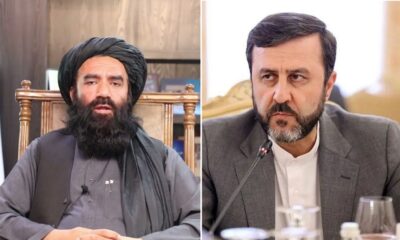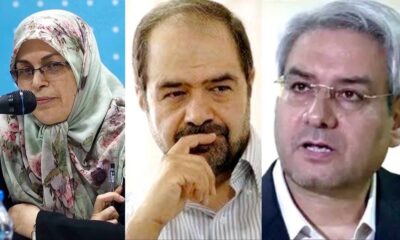Latest News
Political change in Pakistan as Shehbaz Sharif seeks to become PM
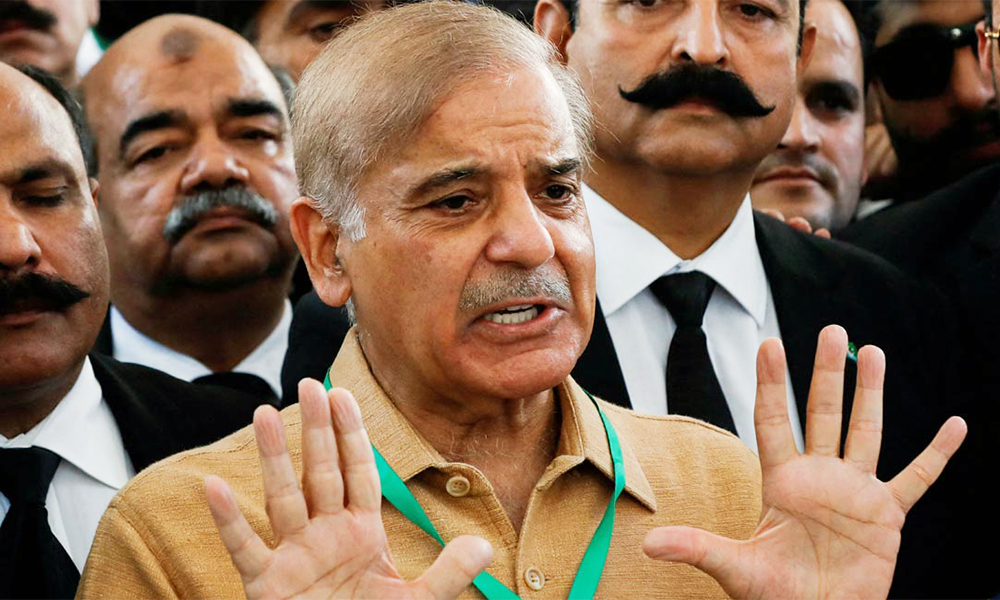
Opposition politician Shehbaz Sharif submitted his nomination to be Pakistan’s next prime minister to the legislature on Sunday, his party said, after incumbent Imran Khan lost a no-confidence vote in parliament after nearly four years in power.
The younger brother of three-times prime minister Nawaz Sharif, Shehbaz, 70, has led a bid by the opposition in parliament to topple former cricket star Khan, and he is widely expected to replace him following a vote on Monday.
But Khan’s party also submitted papers nominating the former foreign minister as a candidate, saying their members of parliament would resign en masse should he lose, potentially creating the need for urgent by-elections for their seats.
Khan, the first Pakistani prime minister to be ousted by a no confidence vote, had clung on for almost a week after a united opposition first tried to remove him.
On Sunday, he repeated allegations that a foreign conspiracy was behind the regime change.
“The freedom struggle begins again today,” he said via his Twitter account, which is followed by more than 15 million and still describes him as Prime Minister of Pakistan in his biography section.
Even before the vote Khan had called for protests, which were expected to take place late on Sunday.
“I tell all of my supporters across Pakistan, on Sunday, after Isha (evening) prayers, you all have to come out of your homes and protest peacefully against this imported government that is trying to come to power,” he said in an address to the nation on Friday.
His government fell in the early hours of Sunday after a 13-hour session that included repeated delays and lengthy speeches by lawmakers from his Pakistan Tehreek-e-Insaf party.
Opposition parties were able to secure 174 votes in the 342-member house for the no-confidence motion, giving them the majority they needed to enable Monday’s vote to elect a new premier.
Khan’s former information minister Fawad Chaudhry told reporters of the plan for resignations if their nominee does not win.
The speaker would be obliged to accept those resignations that would necessitate by-elections in probably more than 100 seats.
That could plunge the country into another crisis as the election commission has previously said it would not be ready to hold elections until October.
ROLE OF MILITARY?
Two sources who declined to be identified said the vote that ousted Khan went ahead after the powerful army chief, General Qamar Javed Bajwa, met Khan, as criticism mounted over the delay to the parliamentary process. The Supreme Court has also ordered parliament to convene and hold the vote.
The military has ruled the country of 220 million people for almost half its nearly 75-year history.
It viewed Khan and his conservative agenda favourably when he won election in 2018, but that support waned after a falling-out over the appointment of the influential military intelligence chief and economic troubles that led to the largest interest rate rise in decades this week.
Khan had antagonised the United States throughout his tenure, welcoming the Islamic Emirate (IE) takeover of Afghanistan last year and more recently accusing the United States of being behind the attempt to oust him. Washington dismissed the accusation.
Shehbaz Sharif said Khan’s departure was a chance for a newbeginning.
“A new dawn has started … This alliance will rebuildPakistan,” he told parliament on Sunday.
Sharif was for years chief minister of Punjab province and has a reputation as an effective administrator.
His first tasks would be to repair relations with the powerful military as well as ally the United States, and tend to a stuttering economy.
Some analysts say navigating major political and economic hurdles with a united front would be a challenge for the new coalition, which comprises several diverse political parties.
“There are going to be divisions and divergences within the key coalition partners,” said Mosharraf Zaidi, senior fellow at thinktank Tabadlab, adding the first likely hurdle would be the raising of fuel prices in coming days.
“They are going to face both internal resistance within the coalition and possibly even criticism by coalition members and that will be in the first few days, not even weeks,” he added.
Latest News
Pakistan to repatriate nearly 20,000 Afghans awaiting US resettlement
Authorities will also share verified data of the affected individuals with relevant departments to support implementation.
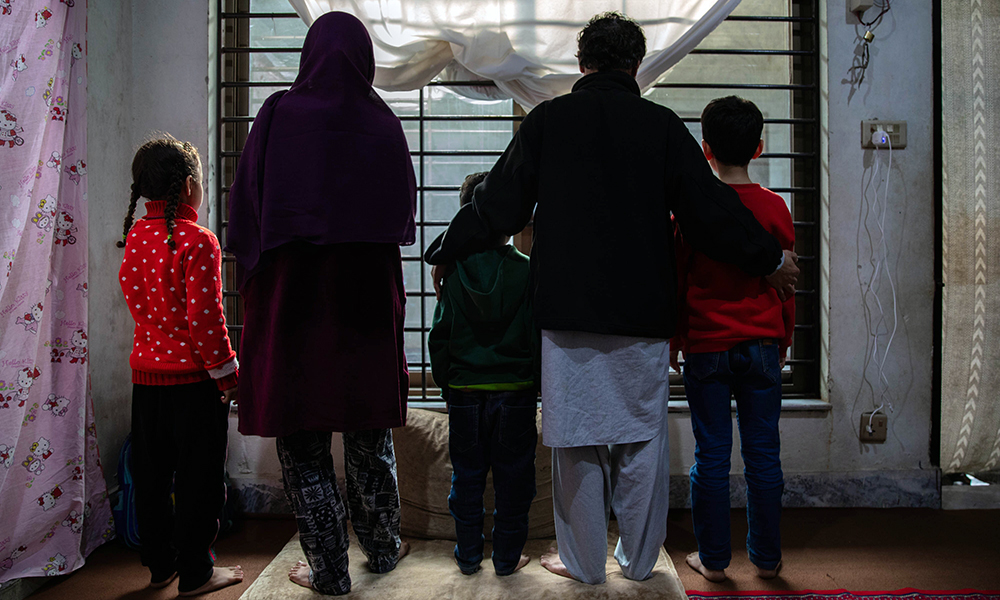
Pakistan will repatriate nearly 20,000 Afghan nationals currently awaiting resettlement in the United States, The Nation reported, citing official sources.
The move affects 19,973 Afghans living across Pakistan.
A federal directive will instruct provincial chief secretaries and police chiefs in Punjab, Sindh, Khyber Pakhtunkhwa, Balochistan, Azad Kashmir, Gilgit-Baltistan, and the Islamabad Capital Territory to begin the repatriation process immediately.
Authorities will also share verified data of the affected individuals with relevant departments to support implementation.
Following the Islamic Emirate’s return to power in 2021, more than 100,000 Afghans fled to Pakistan, many of whom had worked with the US and UK governments, international organizations, or aid agencies.
Thousands have remained stranded in Pakistan for over four years while awaiting US resettlement clearance.
Prospects for relocation have dimmed amid a suspension of case processing by the US administration, according to The Nation.
Under Pakistan’s Illegal Foreigners Repatriation Plan (IFRP), all Afghan nationals still awaiting US relocation will now be returned to Afghanistan.
Latest News
Terrorist activities observed along Afghanistan borders, says Lavrov
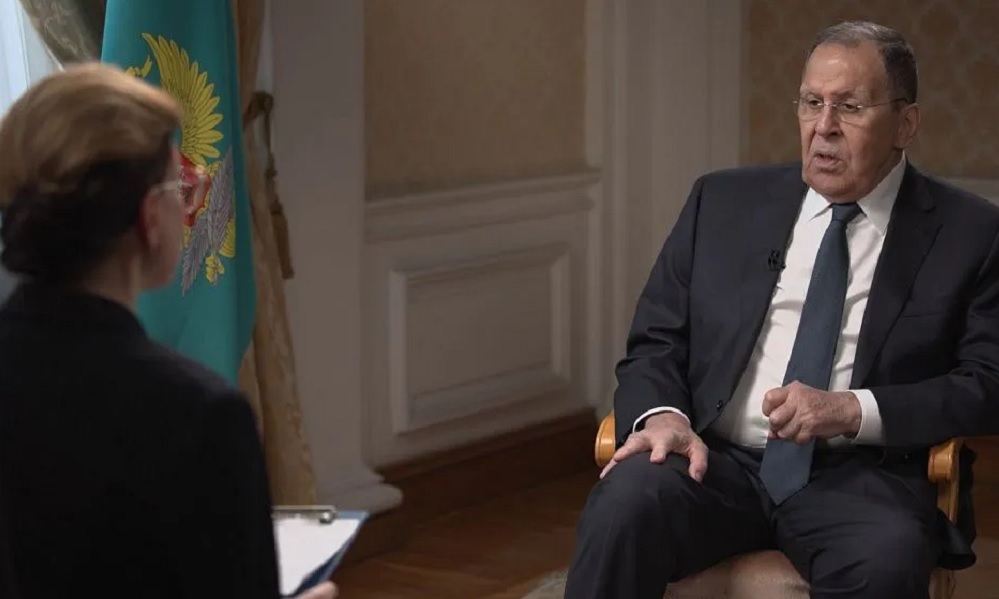
Terrorist activities continue to be observed along Afghanistan borders and along the India–Pakistan–Afghanistan corridor, Russian Foreign Minister Sergei Lavrov said in an interview published on Monday.
Speaking to Russia-based media outlet TV BRICS, Lavrov pointed to ongoing concerns in the Middle East, including its Asian regions.
He highlighted the importance of collaboration with India at the United Nations to advance a global counter-terrorism convention.
Lavrov stated that while the draft convention has already been prepared, consensus on its adoption has not yet been reached.
Russia has repeatedly expressed concern about militant threats from Afghanistan. The Islamic Emirate, however, has dismissed the concerns saying that it will not allow Afghanistan’s soil to be used against any country.
Latest News
Afghan border minister holds phone talks with Iran’s deputy foreign minister
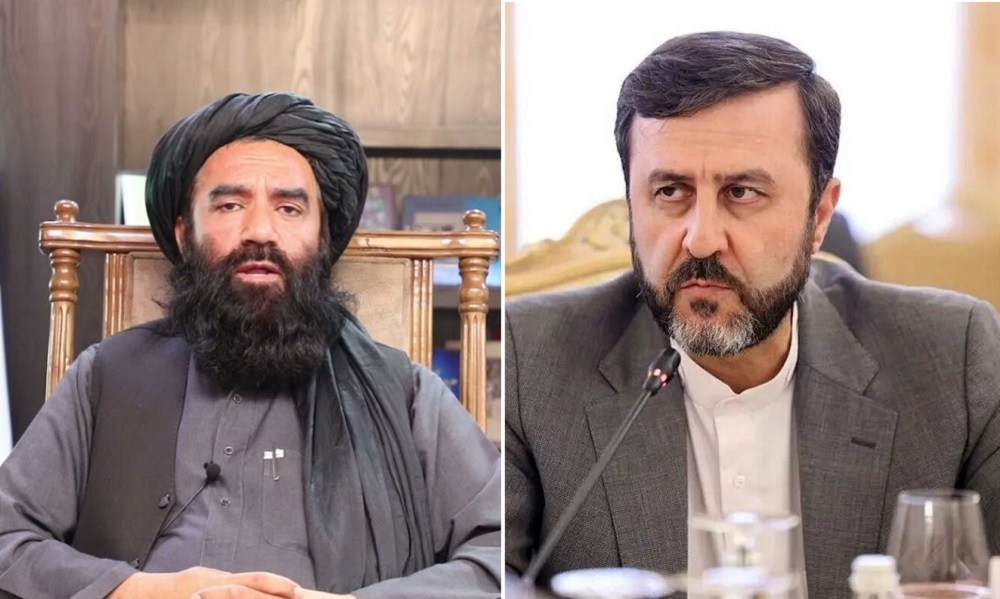
Noorullah Noori, Afghanistan’s Minister of Borders and Tribal Affairs, held a phone conversation with Kazem Gharibabadi, Iran’s Deputy Foreign Minister for Legal and International Affairs, to discuss bilateral border cooperation.
According to the Iranian news agency IRNA, both sides reaffirmed their commitment to strengthening border collaboration, with a particular focus on the ongoing renovation and updating of border markers. They also agreed to accelerate joint technical and legal meetings to enhance coordination.
As part of the agreement, the next meeting of senior border officials from Afghanistan and Iran is scheduled to take place in Iran in 1405 (2026–2027).
-

 Latest News3 days ago
Latest News3 days agoAfghanistan to grant one- to ten-year residency to foreign investors
-

 Latest News5 days ago
Latest News5 days agoTerrorist threat in Afghanistan must be taken seriously, China tells UNSC
-

 Sport4 days ago
Sport4 days agoIndonesia shock Japan to reach historic AFC Futsal Asian Cup final
-

 Sport5 days ago
Sport5 days agoMilano Cortina 2026 Winter Olympics: What You Need to Know
-

 Sport3 days ago
Sport3 days agoIran clinch AFC Futsal Asian Cup 2026 in penalty shootout thriller
-

 Latest News5 days ago
Latest News5 days agoUS Justice Department to seek death penalty for Afghan suspect in National Guard shooting
-

 Latest News3 days ago
Latest News3 days agoAfghanistan says Pakistan is shifting blame for its own security failures
-

 Latest News5 days ago
Latest News5 days agoUzbekistan, Kazakhstan discuss cooperation on Afghanistan






